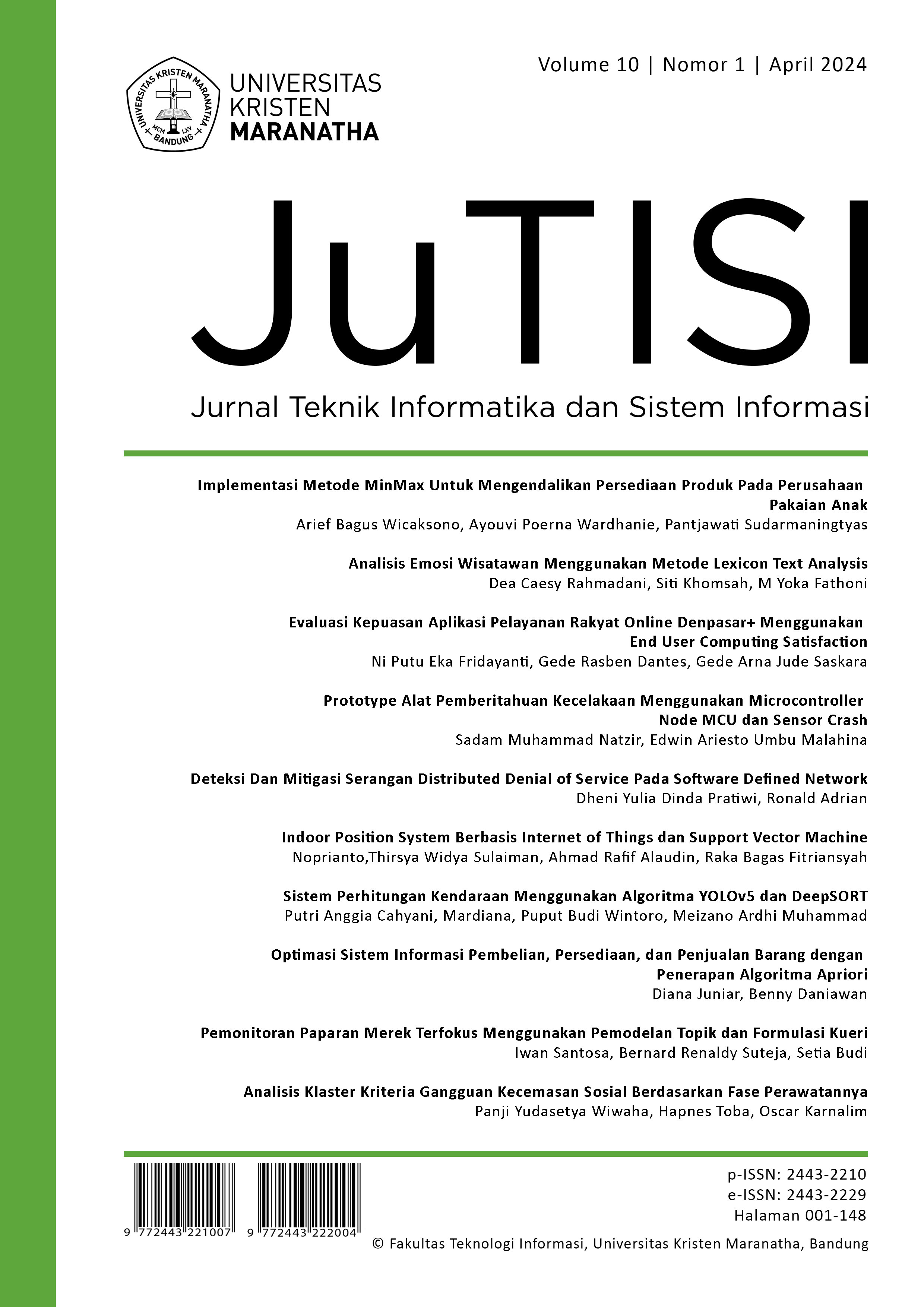Implementasi Metode MinMax untuk Mengendalikan Persediaan Produk pada Perusahaan Pakaian Anakling Product Inventory At Umkm Babyje Probolinggo
Isi Artikel Utama
Abstrak
Babyje adalah usaha mikro kecil menengah yang memproduksi pakaian anak-anak dengan bahan baku yang beragam, sehingga dalam proses produksinya, Babyje mempunyai data Bill of Material dari masing-masing produknya. Oleh karena itu, manajemen persediaan produk dan perencanaan kebutuhan bahan baku menjadi tahap penting dalam proses produksinya. Namun, Babyje mengalami kendala pada persediaan produknya karena permintaan pasar yang tidak stabil. Pada bulan Juli tahun 2022, Babyje mengalami persentase stockout dan overstock dengan persentase yang sama yaitu 50%, sedangkan pada bulan Agustus, cenderung mengalami overstock dengan persentase 80% dan pada bulan September cenderung mengalami stock out dengan persentase 70%. Hal tersebut dapat meningkatkan biaya penyimpanan dan menghambat permintaan pembeli. Penelitian ini menggunakan metode waterfall untuk pengembangan perangkat lunaknya dan metode min max untuk mengendalikan persediaan produk. Tujuan dari penelitian ini adalah untuk menghasilkan aplikasi pengendalian persediaan produk dengan menggunakan metode min max. Hasil implementasi aplikasi menggunakan metode min max dapat mengingatkan usaha mikro kecil menengah kapan saat yang tepat untuk melakukan restock, serta memberikan rekomendasi jumlah pesanan yang sebaiknya di restock. Berdasarkan hasil pengujian black box testing dengan total 120 test case yang dilakukan oleh 2 role user, semua fungsionalitasnya berjalan dengan baik dengan persentase keberhasilan 100%, dan untuk pengujian user acceptance testing, semua role user telah menerima aplikasi dengan persentase penerimaan 100%. Hasil dari aplikasi ini dapat dihitung selisih antara jumlah pesanan seharusnya dan rekomendasi jumlah pesanan melalui sistem. Dari hasil perhitungan tersebut, terdapat relative error dari perhitungan sistem dengan persentase 14,02%.
Unduhan
Data unduhan belum tersedia.
Rincian Artikel
Cara Mengutip
[1]
A. B. . Wicaksono, A. Wardhanie, dan P. . Sudarmaningtyas, “Implementasi Metode MinMax untuk Mengendalikan Persediaan Produk pada Perusahaan Pakaian Anakling Product Inventory At Umkm Babyje Probolinggo”, JuTISI, vol. 10, no. 1, hlm. 1 –, Mei 2024.
Terbitan
Bagian
Articles

Artikel ini berlisensi Creative Commons Attribution-NonCommercial 4.0 International License.
This is an open-access article distributed under the terms of the Creative Commons Attribution-NonCommercial 4.0 International License (https://creativecommons.org/licenses/by-nc/4.0/) which permits unrestricted non-commercial used, distribution and reproduction in any medium.
This work is licensed under a Creative Commons Attribution-NonCommercial 4.0 International License.

